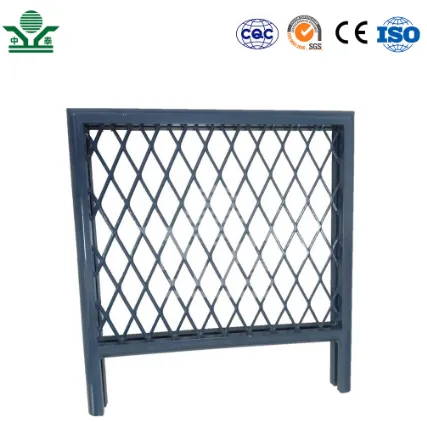Understanding Sound Deadening Materials An Essential Guide
In our increasingly noisy world, the demand for a peaceful and quiet environment has never been higher. Noise pollution can significantly impact our quality of life, disrupt concentration, and even affect our health. As a solution, many individuals and industries are turning to sound deadening materials. But what are these materials, and how do they work? This article will delve into the types, benefits, and applications of sound deadening materials.
What Are Sound Deadening Materials?
Sound deadening materials, also known as soundproofing materials, are substances designed to reduce sound transmission and minimize noise pollution. They achieve this by absorbing, blocking, or isolating sound waves. Depending on their composition and application, these materials can effectively dampen vibrations, thereby lessening the impact of unwanted noise.
Types of Sound Deadening Materials
1. Mass Loaded Vinyl (MLV) This dense, flexible material is commonly used in both residential and commercial settings. MLV adds mass to walls, floors, and ceilings, which helps minimize sound transmission. It is particularly effective against low-frequency sounds, such as bass and machinery noise.
2. Acoustic Panels Made from porous, sound-absorbing materials, acoustic panels are often used in home theaters, recording studios, and offices. These panels help to reduce echo and reverberation within a space, improving sound clarity and creating a more pleasant acoustic environment.
3. Foam Insulation Acoustic foam, characterized by its unique wedge or pyramid shape, is designed to absorb sound waves. It is lightweight and easy to install, making it a popular choice for home and studio applications. Foam insulation works best in controlling mid to high-frequency noise.
4. Green Glue This innovative product is a viscoelastic compound that can be sandwiched between two layers of building materials, such as drywall, to reduce sound transmission. Green Glue dissipates sound vibrations and is highly effective in both residential and commercial applications.
sound deadening materials

5. Soundproof Drywall This special type of drywall contains soundproofing materials within its composition. It is thicker and denser than standard drywall, allowing it to block more sound transmission. It is often used in multifamily units to minimize noise between apartments.
6. Carpet and Underlay While not traditionally seen as soundproofing materials, carpets and their underlays can significantly reduce noise, particularly footfalls. They absorb impact sounds, making them ideal for use in residential and commercial settings.
Benefits of Sound Deadening Materials
The advantages of using sound deadening materials are numerous. Firstly, they enhance comfort by creating a quieter environment, which is particularly important in busy urban areas or industrial workplaces. Secondly, they improve productivity by reducing distractions, allowing individuals to focus better on tasks. Additionally, soundproofing can enhance relationships among neighbors in multi-unit dwellings by minimizing disturbances caused by everyday activities.
From an aesthetic standpoint, sound deadening materials come in various designs, colors, and textures, allowing individuals to maintain their decor while improving sound control. For businesses, investing in soundproofing can lead to a better customer experience, particularly in settings such as restaurants where conversations could be impacted by excessive noise.
Applications of Sound Deadening Materials
Sound deadening materials can be used in a wide range of applications. Residential settings benefit from soundproofing in bedrooms, home theaters, and living rooms. In commercial spaces, it is commonly applied in offices, conference rooms, and restaurants. Furthermore, musicians and recording artists often utilize these materials in studios to ensure high-quality sound recordings.
Conclusion
Sound deadening materials are crucial in creating quieter and more enjoyable living and working environments. With various types available, they cater to different soundproofing needs and can enhance the overall quality of life. Whether you are a homeowner looking to reduce noise or a business owner seeking a more pleasant atmosphere for customers, investing in sound deadening materials is undoubtedly a step in the right direction.
-
Why Galvanized Trench Cover Steel Grating Resists Corrosion
NewsJul.10,2025
-
The Versatility and Strength of Stainless Expanded Metal Mesh
NewsJul.10,2025
-
Load Calculations in Steel Grating Platforms
NewsJul.10,2025
-
Keeping Pets and Kids Safe with Chicken Wire Deck Railing
NewsJul.10,2025
-
Hole Diameter and Pitch for Round Perforated Metal Sheets
NewsJul.10,2025
-
Aluminium Diamond Mesh in Modern Architecture
NewsJul.10,2025
Subscribe now!
Stay up to date with the latest on Fry Steeland industry news.

